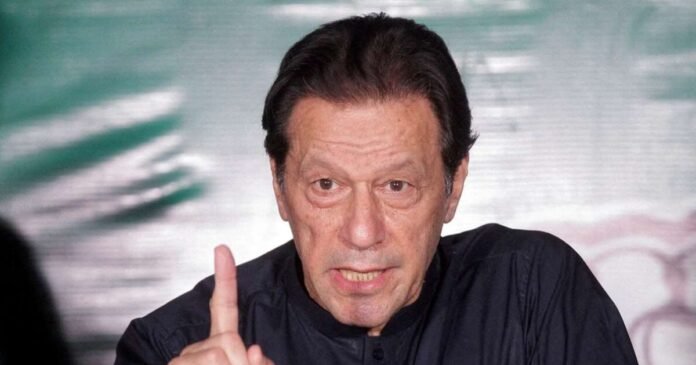As Pakistan gears up for the general election on February 8, the Pakistan Tehreek-e-Insaf (PTI) faces a unique set of challenges. Despite its founder, former Prime Minister Imran Khan, being jailed and barred from running for office, the party remains steadfast in its belief that victory is possible. The PTI is adopting a multifaceted strategy, leveraging social media and introducing new, untested candidates to overcome obstacles imposed by authorities.
One such candidate is Rehena Dar, a septuagenarian who, despite unexpected forays into politics, exudes confidence as she navigates the narrow streets of Sialkot. Her spirited campaign, marked by rose petals and beating drums, reflects the resilience of PTI supporters. However, due to the electoral commission’s decision to strip the PTI of its cricket bat symbol, candidates like Mrs. Dar now rely on alternative symbols, such as a baby’s cot or a saxophone.
Amid these challenges, the PTI is harnessing the power of technology to connect with voters. Social media platforms, including X, Instagram, and TikTok, serve as crucial channels for reaching millions. Imran Khan’s personal presence on these platforms enhances direct communication with the electorate. To address the absence of a unifying symbol, the PTI has developed a website allowing voters to identify PTI-backed candidates by their respective symbols.
The incarceration of Imran Khan, a charismatic figure capable of drawing massive crowds to rallies, presents another hurdle. With Khan in jail since August, the PTI has encountered difficulties organizing physical rallies. Recent incidents, such as the use of tear gas to disperse PTI supporters in Karachi, highlight allegations of impediments and harassment against the party.
In response, the PTI has embraced virtual rallies as a cost-effective and rapid alternative. Despite concerns about the impact compared to physical rallies, the party experimented with AI-generated speeches during an online rally in December. However, challenges persist, with reports of nationwide disruptions coinciding with some virtual rallies.
Political analysts, including Michael Kugelman from the Wilson Centre think tank, suggest that the military’s influence, instrumental in Imran Khan’s rise to power, remains a significant factor. Kugelman notes similarities to past elections but emphasizes the intensified nature of the current situation, with higher numbers of arrests and a broader impact on leaders and their families.
As the PTI attempts to transform setbacks into motivation, the question arises: can they inspire their support base to overcome the odds and participate in the electoral process? With mainstream media predominantly covering Imran Khan’s legal battles, the PTI faces the challenge of redirecting attention to their campaign message.
Despite skepticism and obstacles, some within the PTI believe that a high voter turnout could lead to a miraculous victory. As the election date approaches, the party grapples with the task of mobilizing its base and proving that, even in the face of adversity, electoral success remains within reach.
